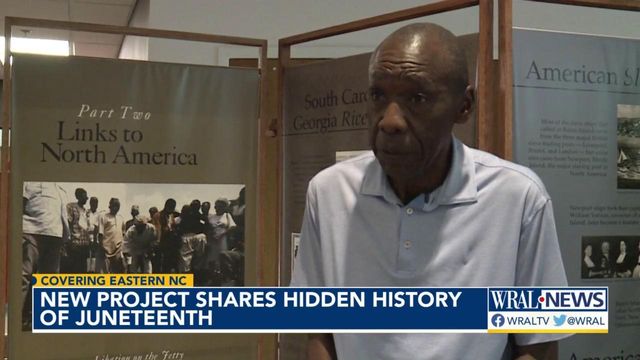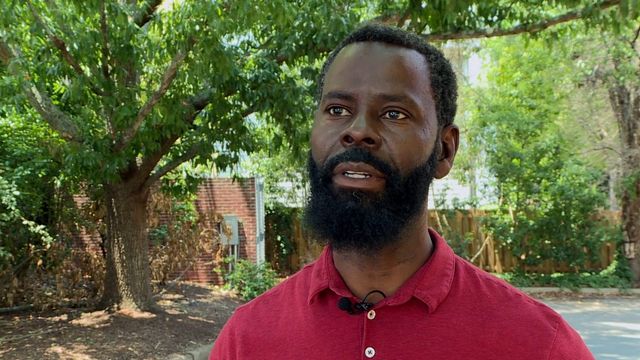Local history of Juneteenth: How did slavery end in NC?
On this Juneteenth weekend, a group of historians are launching a new effort to find the hidden history of how enslaved people gained their freedom in southeastern North Carolina.
In Wilmington, many of those stories still resonate with the community today.
It’s been a year since the federal government recognized Juneteenth as a holiday, commemorating when the last enslaved men and women were freed in Texas in 1865.
Historians in Wilmington say the holiday’s raised awareness about how slavery ended on the national level – but it’s left them with new questions about what happened next here at home.
"I don't think much is known about the conversations here in southeastern North Carolina," says Joe Bryant, president of the African American Heritage Foundation of Southeastern NC.
Historians have worked to piece together the story of how the first days of freedom looked in Raleigh, when thousands of people were freed from local plantations and began work building the first Freedmen's Villages in the area. Free, but with no money, schools, hospitals or homes, the community pulled together and built, brick-by-brick, a new life for themselves in freedom.
Through interviews and archeological studies, the group plans to build a digital history of how free Black communities came to be in Brunswick County.
"Juneteenth is about freedom. So as we look at Juneteenth, we need to look at in North Carolina, the Black freedom movement," he says.
Historians say Juneteenth itself was mostly celebrated in Texas. However, many small towns and cities in North Carolina celebrated a holiday known as Emancipation Day, which came on January 1 each year. It marked the official date the Emancipation Proclamation was signed – even though freedom didn't usually come until Union soldiers arrived to occupy southern cities.
Black business owners in Wilmington say Juneteenth is an opportunity for conversations about race that still need to happen.
"The more you talk about things, the more aware people become of it," says Felix Emeka, owner of Wilmington African and Carribean Market.
Emeka opened the only African market in Wilmington two years ago. He’s proud of the accomplishment – but also aware of what it took to get here.
Emeka thinks often of the 1898 Wilmington Massacre, when a white supremacist mob burned Black homes and businesses, killing up to 300 people and overthrowing the city’s biracial government.
"The people that were before us, they paid a big price. They saw there needed to be change, and they went for it," he says. "So that way we can be where we are today."
Out of that darkness, Emeka says Wilmington has developed into a community where different cultures are celebrated. He hopes Juneteenth will keep pushing that conversation forward for the next 100 years.
"I’m really, really happy that there’s a day set aside to recognize that. So it’s a good thing. It’s a step in the right direction," he says.
If you want to commemorate Juneteenth, here's a list of more than a dozen tours, exhibits and events around the Triangle. There's also a list of Juneteenth events happening in the Wilmington area.













